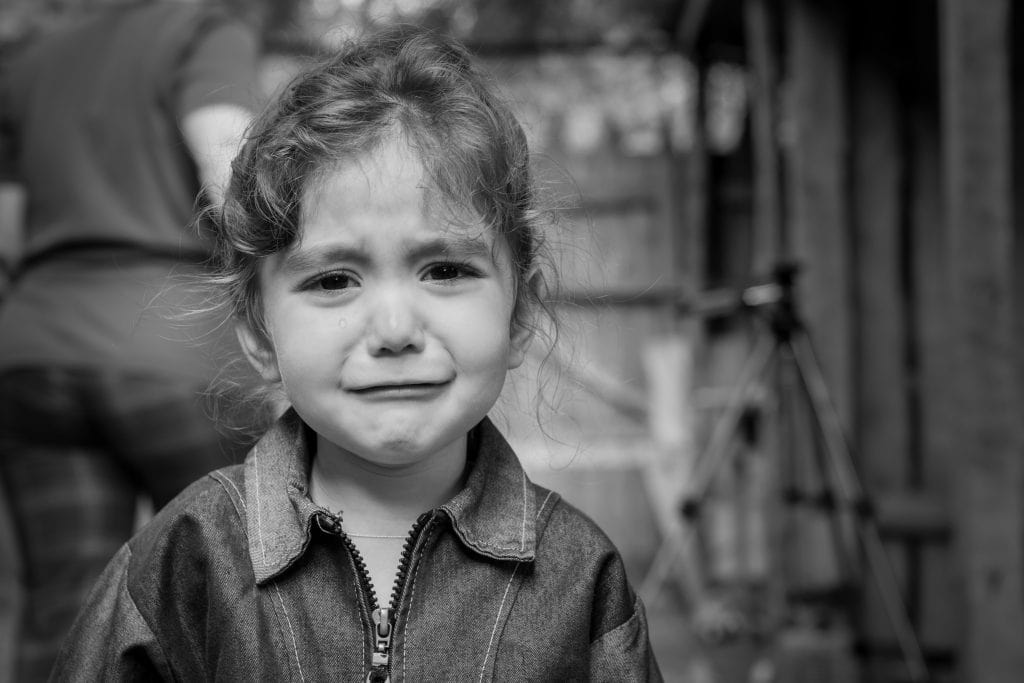Four families got together one weekend to go for a walk and take their children to the movies.
On the way, they stopped off at the playground, where the kids went wild in the park.
Some swung on the swing, others went crazy on the merry-go-round, and some even jumped on the trampoline.
Then it was time to go to the movies, but one of the kids didn’t want to get off the trampoline.
He still wanted to jump.
So everyone waited for him.
He showed no intention of going out.
His parents tried to convince him.
No reaction.
Time passes.
Everyone is already a little nervous.
The film starts in twenty minutes; if something doesn’t happen right away, they’ll miss the beginning.
His parents seem to be gradually accepting their fate.

He’ll come out when he decides!
The other families don’t know what to do: wait for them or leave without them?
In the end, they decide to leave, although they can already see they’re late.
Their friends stay with their son, apparently not at all disconcerted by the change of plans.
Everything’s fine, everything’s great.
However, if everything is so wonderful, why have they found themselves in an unpleasant situation?
If the four-year-old son is the one who really makes the decisions in his family, and if it suits them, then why are they trying to do something for themselves, like going to the movies?
Apparently, the way this family works isn’t very healthy.
The parents aren’t quite in the right position, and the consequence is that they have no control over the situation.
Yet they’re the ones who work to provide for their children, pay the bills and keep a roof over their heads.
These are responsible people!
Yet they don’t know what they’re going to do or where they’ll be in 15 minutes, because it’s out of their hands.
Can they then be satisfied with the state of things, even if they smile and pretend that all is well?
Of course, beneath this superficial indifference, they’re not satisfied.

They probably feel that parenthood is a very stressful task and wish it were easier for them.
But because they can’t recognize exactly what the problem is, they don’t even know what to do.
They think it’s really hard to have a child.
When they meet other parents, they lament and continue to suffer.
The people next to them often suffer too, because the consequences also affect their lives, as in the case of friends who were late for the film.
Why don’t they see their problem?
Because it’s too painful for them to see, because they don’t know what to do with it.
They close their eyes because it seems unsolvable.
Because their problem isn’t how to convince their child to get off that trampoline, or how to persuade him to go to sleep or to kindergarten.
In those cases, they could do something, try this or that approach, because they’d have a goal.
Their problem goes deeper than that.

They are so confused by the messages they receive from all sides, that they don’t know what their goal is.
Parents don’t know if they are allowed to intervene.
They fear that any approach is a kind of destruction of the child’s personality, a violation of his integrity, of his limits, showing that they don’t really see the child, inflicting wounds with incalculable consequences.
My point is this.
There’s a message I often see on social networks.
To paraphrase, the idea would be:
Maybe the child’s behavior will sometimes ruin the experience for everyone present, but refraining from such behavior could ruin his life.
In the last ten years I’ve been involved in writing and the media, I’ve learned one truth: everyone understands your words in their own way.
We all have our own preconceptions, the way we make associations, we think at a certain level of knowledge and experience.
We decipher all messages that come to us according to our abilities.
And the more vague the messages, the more we project ourselves and our fears onto them.
A young, inexperienced and anxious parent will easily draw conclusions from everything that’s been said.

They will understand that any intervention is harmful to the child.
The harm of brutally crushing the child’s will with authoritarian methods would equal the harm of any imposition of the parents’ will.
Could parental intervention in the park be so fateful?
Perhaps, if it were rude, violent, humiliating and repeated every time.
But could the parents resolve the situation in a non-traumatic way?
That’s why I think it’s very important that such strong messages that arouse parental fears are accompanied by an explanation of the situations to which they apply and those that don’t.
If there’s no such clarification, if you’re not sure you understand what’s been said, ignore the message.
Seek advice from someone you’re less afraid of.
We choose whom to trust and which of the offered advice to accept, and how we choose depends on the consequences for our own family.
An insecure parent practically invites the child to take control.

The child doesn’t do this because he’s mean, rude and insolent, but because he sees that you have no idea what you’re doing.
Your insecurity and confusion show him that he needs to make decisions.
And the defiance and destructive behaviors are a sign that such a family dynamic doesn’t appeal to him at all.
The good thing is that you don’t have to turn a blind eye to this problem, because it’s not insurmountable.
You won’t ruin your child’s life if you occasionally frustrate him, as long as your relationship is generally close and warm.
If we’re dedicated most of the time, if we’re willing to reconsider our decisions and ready to change, we’re on the right track, even when we impose limits on the child.
A child is a person who demands respect and appreciation, but he’s not yet capable of taking responsibility for a large part of his own care.
He’s not yet competent to care for the needs of others, like your friends.
If you choose to do nothing, you’ve also made a decision, but is it the happiest one?
The responsibility is yours, whether you made it or not, because the consequences are felt by you and your child.
Your satisfaction or dissatisfaction with parenthood and life is a direct indicator of whether you have a problem.
And your willingness to see and acknowledge it is a prerequisite for solving it, because what you don’t see, you can’t even change.

Mother of three and a primary school teacher. I’ve always loved being around children and helping them, so I chose my path as a teacher. It is sometimes hectic with three children, but I am 100 percent into it and wouldn’t change it for anything in the world.

